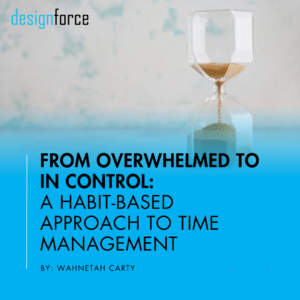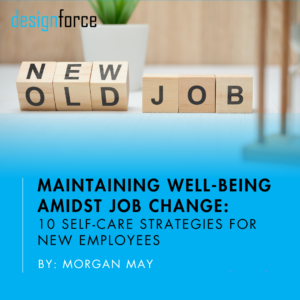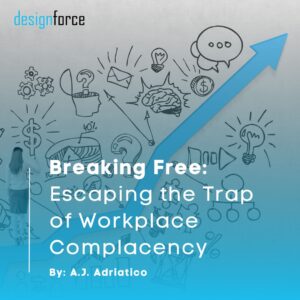For many AEC professionals, empathy and emotional intelligence are not topics that are emphasized in the workplace. To some, they may not seem like topics that are relevant at all. For a long portion of my engineering career, I thought I lived in a world where my emotions and human-focused way of thinking were a weakness, but I discovered that I was wrong. I want to share with you all the world we can create when we lean into our emotions and use them as a rich source of information to operate our organizations in a more effective, people-first way.
Anyone who knows me well knows that I can be a very sensitive, emotional, and empathetic person. For better or for worse, I have always spent a lot of time feeling my feelings and analyzing how others feel too. This emotions-driven way of living and thinking always made me feel like somewhat of an outsider to other engineers. I was always surrounded by smart, logical people and this used to be quite a source of insecurity for me. I didn’t feel as legitimate or serious as my peers focusing on something as intangible as feelings.
However, as I continued to get more experience on the people side of my career and gain confidence, it was finally starting to click. Having an emotional, human-focused way of thinking doesn’t necessarily have to be a distraction from hard-core engineering work but can instead be a valuable skill set to bring to the table. After all, emotions are information – so emotions are an additional data set to inform better what we do and how we operate.
There is a term for all of this. Emotional intelligence, often referred to as EI or EQ, is the ability to understand and manage your emotions, in addition to the emotions of others (you can read more in this article). Below are four ways that emotional intelligence can be a total game-changer in the workplace.
#1 Trying to create more innovative designs? Try EQ.
I’m sure many of us have come across someone at work who isn’t aware of how their demeanor or attitude might be impacting others, or generally isn’t the best at “reading the room.” Maybe it is someone who isn’t so great at communicating their ideas or tends to give overly critical advice in a non-tactful way. This can pose a challenge when trying to develop a cohesive, trusting team.
In the AEC industry, collaboration is key to developing innovative, creative designs. There are many reasons why someone may be hesitant to speak up and contribute, but often, intimidating environments can be a barrier for teammates who are still developing confidence. Without having an emotionally intelligent team around, people may feel reluctant to contribute an out-of-the-box idea to a design or may hold back on sharing an idea for a creative initiative for the organization that has the potential to make great change.
#2 Work better, together.
A study done by the Yale Center for Emotional Intelligence found that people who work for supervisors who have higher emotional intelligence tend to feel 50% more inspired in their work, are significantly less burnt out, and have higher purpose and meaning in their work. This all leads to increasing productivity in teams, which is critical in the AEC industry.
I once worked with a project manager who was really in tune with how his team was feeling day to day. He would go out of his way to check in personally with teammates and see how people were doing. This gave people an opportunity to share if something was going on outside of work or, to be honest with how they were balancing their responsibilities. In turn, this allowed my project manager to keep a pulse on his team and see how he could help our work go more smoothly.
Demonstrating EQ within a team can increase more effective collaboration both internally and with trade partners, subcontractors, and clients. This can result in more efficient designs and ultimately, better deliverables.
#3 Think caring cultures aren’t important in the AEC industry? Think again.
I can be a stress-prone person and early in my career, I remember one project in particular that was super challenging for me. I was spending a lot of late nights trying to progress the design, but I didn’t realize how much pressure I was putting on myself. One day, I was walking past my supervisor’s office and he called me in, looked at me, and asked how I was doing. He said he could tell I had been super stressed lately and wanted to make sure I was okay. I was fully prepared to brush it off and say I was doing fine.
But instead, my face crumpled, and I broke down in tears. At that moment, all the insecurities of living in an industry where I had been conditioned to think that emotion in the workplace showed weakness just compounded and came out in a couple sobs in that office. My gut reaction was pure embarrassment and feeling ashamed for letting anyone, especially someone at work, see me let down my guard. But my supervisor didn’t let me feel embarrassed or bad for it. He encouraged me to let it out, we came up with a plan to help me out and we were able to eventually get the project out on time.
While this was difficult at the moment, it was the ultimate demonstration to me of why emotional intelligence is critical in the AEC industry. Seeing a leader exhibit such genuine care and acceptance showed me that EQ can be the difference between someone feeling on the brink of breaking down and feeling prepared, motivated, and ready to take on new challenges.
#4 Level up your leadership game with EQ
If you hold influence within an organization or have a leadership title, it is important to acknowledge the importance of your actions. Have you had conversations with members of your teams about what specifically is it that motivates them? Even through the busy times, have you put in the effort to get to know your staff personally?
Demonstrating emotional intelligence, care, and empathy for the people you work with can empower people on your teams to do the same. It is important to maintain a level of vulnerability and honesty with your teams, as this will help people realize that you are approachable, have strengths and weaknesses just like them, and that you care about their well-being as a person, not just an employee. Anticipate how people will feel when making decisions and let that impact how you present an outcome. Lead by example on construction sites and show that keeping tabs on people’s emotions and well-being is a great thing. Especially in the AEC industry, where this behavior isn’t always standard, demonstrating this behavior will help normalize it and cascade through your teams.
Final Thoughts
While emotional intelligence may not feel natural to everyone, it is a valuable skill that can be learned and improved. I would challenge everyone to spend the next couple of days seeing the world through emotionally intelligent glasses and to take a self-evaluation of their own EQ. If you or your teams are interested in learning more about Emotional Intelligence in the Workplace, reach out to me at th@designforce.me!

Related Posts
Let's learn together.
Stay inspired and in the know on all things A|E|C.
Sign up for our monthly newsletter.










